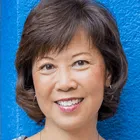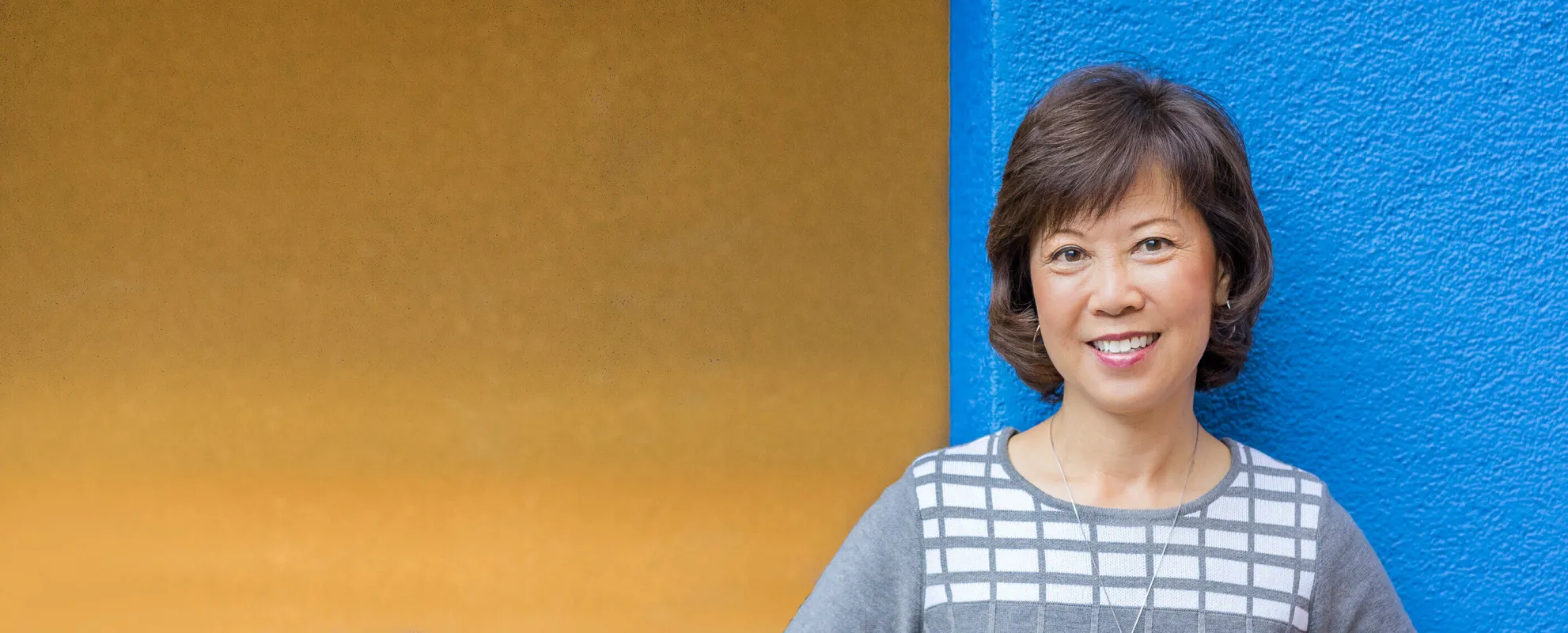In 2005, Jane Hyun coined the phrase “bamboo ceiling,” in her book Breaking the Bamboo Ceiling: Career Strategies for Asians, to describe the barriers many Asian Americans experience in their careers. It’s been more than a decade since Hyun’s book was published, but not much has changed: A recent study found Asian Americans are the most likely minority to be hired into tech jobs but the least likely to be promoted into management roles. Other industries like medicine, finance, and law report similar narratives. A 2017 study by researchers at Yale Law School found that while Asian Americans represent the largest minority group at major law firms, they have the lowest ratio of partners to associates.
Denise Peck, MBA ’85, has dedicated the recent chapter of her career to cracking this bamboo ceiling. “Asian Americans are highly credentialed, but get stuck in the middle. Why?” asks Peck, who spent 13 years at Sun Microsystems before working in multiple vice president roles at Cisco, where she worked for 14 years. Peck now serves as an executive advisor for Ascend Leadership, a nonprofit that aims to enhance the presence and influence of Pan-Asian business leaders. In a recent article for Harvard Business Review, Peck and Buck Gee, BS, MS ’72, argue that Asians often get shortchanged in reports that measure workforce diversity.
“Because Asian Americans are not considered an underrepresented minority, they are given little priority or attention in diversity programs,” Peck and Gee write. “It is essential to have open, visible, and proactive support from the CEO and the executive team.”
Peck says she learned some of her earliest lessons about the importance of speaking up for herself and her community while at Stanford GSB. On her first day of class, management professor Steven Wheelwright called on her to discuss a case: If she were the CEO, how would she would price the product?
“The back-and-forth with the professor felt like a terrifying interrogation,” Peck recalls. “The more he drilled down, the more I realized, ‘I can’t fake it.’ ” Peck says she quickly learned to speak up, even though it didn’t come naturally to her.
“Some Asians are more reticent and do not volunteer information in that way,” Peck says. “But that early experience taught me to be prepared to speak publicly and, perhaps more important, how to communicate to influence others.”
Part of Peck’s work at Ascend is teaching and mentoring. There she has co-developed a course for mid-level Asian women professionals and another for millennials early in their careers. Through research with the organization, she aims to shed light on the disparity between Asian Americans who work as individual contributors and those in manager and executive positions. In 2015, Peck coauthored a report from Ascend titled “The Illusion of Asian Success” that found there were no significant shifts in upward mobility for minorities in the tech sector between 2007 and 2015.
Peck also supports Asian American professionals through her involvement with Stanford University. In 2016, she worked with fellow alumni to launch the business school’s Asian Alumni chapter, a worldwide community of more than 2,200 members, and later met with Stanford University President Marc Tessier-Lavigne to bring awareness to the lack of Asian leadership on campus: No Asians or Asian Americans hold deanships at Stanford, though the group made up 23% of the student population as of 2016.
“It has come to a time where minorities are standing up and speaking up, and Denise is at the forefront of that,” said George Yang, former associate professor of surgery at Stanford University School of Medicine.
Peck urges students from all backgrounds to widen their definition of success. From her work in marketing to heading operations, she says her career has changed more than she ever imagined it would.
“Students today will have life expectancies of 90 years or more, and the jobs 20 or 30 years from now are yet to be created,” Peck says. “If you define success narrowly, you may miss out on future opportunities.”
Photos by Kiefer Hickman


